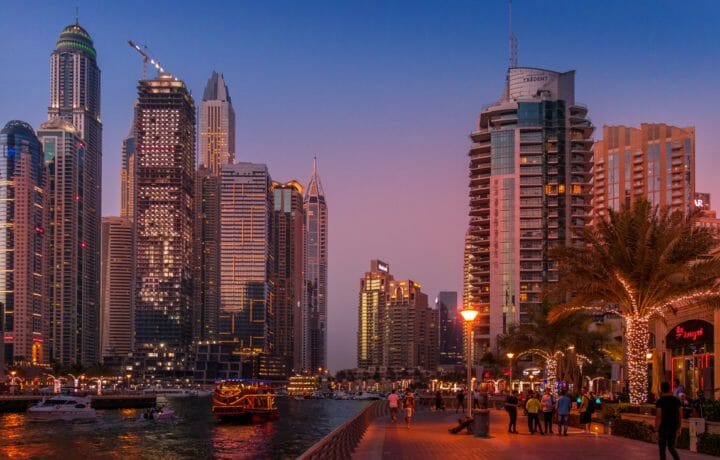The last time I was frequently transiting Dubai and Abu Dhabi, a Hamas leader was assassinated by Israel. I was traveling before and after the killing, and apparently, I looked a bit Israeli to the airport security team. I was stopped numerous times after the January 2010 assassination and asked if I was Jewish or Israeli. My U.S. passport got some extra scrutiny looking for Israeli stamp-marks, and my sad attempts at Arabic banter were not smiled at like normal. As a frequent traveler of the Gulf Region, I was not used to this extra scrutiny. Hearing the news that the United Arab Emirates (UAE) and Israel were going to normalize their relationship as U.N. member nations brought back a lot these memories.

Middle East Progresses Towards peace
I was a skeptic during the current administration’s transition as I sat on the National Security Council (NSC) advisory team and looked at the ideas many about future Israeli-U.S. relations. I thought some changes were overdue. I considered others would be useful leverage to hold until they got the peace talks restarted. It turns out many of the ideas were worth trying. An aggressive approach with both Israel and Muslim-majority nations of the region has worked in tandem with adjusting the U.S. embassy to Jerusalem.
The peace process needed an energy boost. I have been attending the largest Arab-U.S. relations conference in D.C. since 2006, and every year there has been a Palestinian speaker who is connected to the Palestinian territory’s governance. The interest in this segment of the conference has increasingly produced reduced views and interest each year. When the Middle East specialists of America – many who want a Palestinian nation – get tired of your talking points, you are in trouble.
The UAE and Israel Move Not One to Be Ignored
So, this is an important moment for the world and for the Palestinians. Besides bringing a nearly-forgotten peace process back to the news cycle, this move by the UAE will help the Gulf Cooperation Council (GCC) regain some prestige in the Middle East. I suspect this won’t be the last Gulf State to formally recognize Israel and improve relations. Oman took some big steps in this direction over the last few years. As Iran continues to flex its muscles in the region, the GCC states need more allies not less. Befriending Israel and making the U.S. and many European states care about the peace process again is useful for the GCC. The security offered by the U.S. and Europe comes with a few less strings and uncertainties than Russian and Turkish security deals do.
All of this puts Iran in a tougher position. Iran will react for sure, and while it can strengthen the regime’s grip, it can also galvanize Iranians who are tired of the Islamist Regime’s support for terrorism in the region and suppression in Iran. It also shines a bright light on Turkey and Qatar, two fair weather friends of the U.S. and Europe. These two frenemies have been sending mixed signals about where they stand on regional peace, terrorism, and safety. They sometimes side with Iran and sometimes with nations that Iran despises.
“A Geopolitical Earthquake” Might have some Aftershocks
Personally, I am watching to see if other GCC nations follow behind the UAE in normalizing relations with Israel. Bahrain and Oman seem like possible early entrants to the group. Saudi Arabia is surely considering the benefits of making the change. Watching Turkish and Qatari reactions should help nations determine who their friends are in the Middle East, and how much you can trust those two nations. My eye is also on Palestinian leaders. Will they take this moment to reach out to the UAE and determine how they can partner with the UAE to move the peace process forward fairly? Or will Palestinian leaders move closer to Iran and the anti-Israel states to dig in their heels even farther?
Realists can admit that Israel is not going to go away as a nation. The more Arab states and Israel talk, the more likely they will find some answers they can agree upon. Optimists might say this is the beginning of a big shift. Thomas Friedman called it “a geopolitical earthquake.” Pessimists will say this is not a big deal, although leaders have been awarded a Nobel Peace Prize for doing less.
I am pleased with this outcome and hope it leads to more Arab states making the leap. The peace process needs more attention and more vocal partners willing to stand beside both Israel and the Palestinian territories at the same time. This is a good moment for the region and the world to join in on an effort that could lead to the best possible outcome for Israelis and Palestinians in decades. Trying the same old thing has not made the region more peaceful. Maybe something new and unexpected will.




